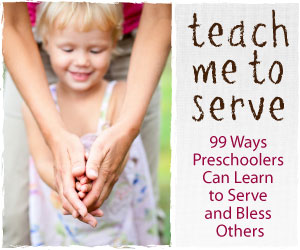I am very excited to welcome Emily Whitten of Redeemed Reader as our guest today. If you are struggling with a reluctant reader or even want to encourage a continued love of reading in your child, you will enjoy Emily’s post today. I sure did!
Most parents understand the importance of reading. We may not often make time to read ourselves, but we want to nurture that love in our kids. I mean, we know it will make them smarter, perform better on standardized tests, and open new worlds of imagination and insight to them that they couldn’t experience any other way. Add to that Christian parents’ desire to live up to our name as “people of the book,” and the pressure can begin to build.
If you’re feeling the pressure to help your reluctant readers, here are a few things that have helped me as a parent and literacy teacher.
1) Take a Deep Breath and…Relax! If you’re stressed about whether your kids are reading, they will often feel stressed too. Some kids fall into reading naturally, but other personality types may never really love reading. They may have to do it like they clean the toilet–only when absolutely necessary. And that is ok. So while you will have to push your child learn to read on some level, give him or her room not to love reading. Sometimes, by taking the pressure off you and your child in the short run, you actually make it more likely that a love of reading will develop long term.
2) Have Age/Maturity-Appropriate Expectations. I often meet parents who expect their kids to read far earlier than they really should. Yet a number of experts have pointed out that kids who don’t experience structured schooling until the age of 7 or even 10 do just as well or better than their peers. (You can read more about that in our Laid-Back Homeschooling post.) While it’s never too early to read to your kids, sometimes even at five or six kids still don’t have the attention span and mental readiness to read well. Make reading–even reading Bible passages which seem over their head–a regular part of their day, and then give them freedom to grow into it. While my oldest learned to read by age four, my youngest needed a break for a few months when she was the same age. When we tried again later, suddenly the lessons clicked and she was reading along with her sister in no time.
3) Challenge Them 10 Minutes A Day. Whether you’re trying to teach your kids to read or to read more broadly, parents often make the twin mistakes of doing too little or too much. Let’s face it, for a wiggly toddler, learning the rules of phonics (as in The Ordinary Parents’ Guide to Teaching Reading) can be pretty boring. The same is true for the busy first grader; learning to enjoy new kinds of books can feel like watching paint dry. My goal in teaching my kids how to read and later to diversify their palate has been to use ten or fifteen minutes to give them a new tool each day–no more and no less. Like eating a bite or two of veggies, it helps give them acquire a taste for something without developing an aversion to it.
4) Get Them Bored. Let’s face it. Reading does not have the immediate gratification that TV, video games, and even some ebooks have. If kids are always surrounded by a beeping, flashing, Chuck-E-Cheese-type environment, it’s unlikely they’ll sit down, pick up a book and develop a taste for reading. So, make time in your day for your kids to be bored! Let them spend thirty minutes in their rooms alone with stack of books each day AND give them a pile of books to take to bed at night.
5) Try Audio Book Training Wheels. The suggestions above are great for a parent with lots of control of their child’s day. But what about parents who, because of work or divorce, etc., only see their kids on weekends? And what about grandparents or aunts and uncles who see kids only on holidays? My suggestion in these situations is to try audio books. You can do the dramatized kind or the more traditional narrative, and you can even use movie tie-ins to peak a kid’s interest. For instance, picking a movie the kids already love, like The Hobbit or one of the Narnia books, lets you begin with lots of mental images in their minds. Often, kids who don’t like to read have a hard time forming the mental images that good readers do automatically, so using a movie tie-in is kind of like offering them training wheels. They will have a lot of ready images to recall, but they won’t be able to remember the ENTIRE movie, so they’ll have to practice making their own as well.
Of course, there are plenty of other things you can do to help your reluctant readers. Some children may need professional help if they are struggling with reading disorders. Others may just need help associating books with fun instead of a dry, boring English class. And while we can’t address every issue, we have touched on many more positive ways to raise readers at Redeemedreader.com. For instance, Kristen was kind enough to help us post on How to Throw a Book-themed Party recently!
Whatever your child’s reason for reluctance, don’t give up! Make sure you have realistic expectations, take away some of the technological stumbling blocks, and then give them room to grow into reading at their own pace. You might be surprised at the results!
Do you know any kids who don’t enjoy reading? Have you found any ways to encourage them? I’d love to hear your insights!
Emily Whitten is a blogger at Redeemed Reader and a movie and book reviewer for World Magazine. She and her husband homeschool their two young children…when she isn’t listening to indie rock on Spotify or running in order to eat more chocolate-covered espresso beans.



 My name is Kristen. I'm a former Wedding & Event Planner blogging about fun ways to celebrate each and every day and the special occasions of life. Here you'll find inspiration for family fun, children's activities, party planning and a faith-filled life.
My name is Kristen. I'm a former Wedding & Event Planner blogging about fun ways to celebrate each and every day and the special occasions of life. Here you'll find inspiration for family fun, children's activities, party planning and a faith-filled life. 



i loved the concept of letting them get bored! LOL! When kids have so many things to choose from (TV, video games, ipad, iphone), books can easily come in a close second or third! I would love books to be my first choice. I love your idea. I also have found that being a reader myself is helpful. My kids usually want to “be” with me (they’re young, but I realize that will soon change with age), so if I’m reading, I try to make a little cozy corner on the same couch for them too. they love it!
I love this post. Thanks for tackling a challenge for so many of us (myself included!). My 6-year-old is a reluctant student in almost every area, even though she’s been identified as exceptionally gifted. It’s a constant struggle for the two of us.
Tara, Glad to know the article touched on something useful for you and your family! Don’t give up! Parenting is such a balance of love and discipline, so keep up the struggle to strike that perfect balance!
Melissa,
That is such a great point. If we want our kids to be readers for the long term, I do think it’s important to model how important it is. (I’d love to see what else you’d put on your list, Melissa. I bet you have lots of other great ideas!)
It’s so true, when my son is bored, he wanders off to find a book:) Thanks for sharing these helpful thoughts!